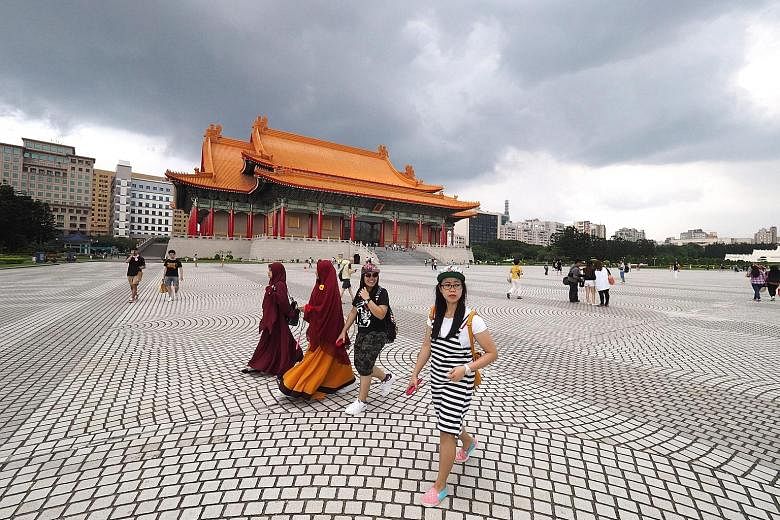Taiwan is knocking on the doors of South-east Asian countries, India, Australia and New Zealand to do business, as the government launched a NT$4.2 billion (S$182 million) plan to "pivot south" to make the island less dependent on China.
Under what is dubbed the new Southbound Policy, the government wants to help Taiwanese companies seal trade deals with regional counterparts in 18 countries.
Besides agriculture, manufacturing and technology, the government aims to expand areas of cooperation to medicine, culture, tourism and education.
Minister without Portfolio John Deng, who unveiled the key initiatives of the new policy on Monday, said Taiwan also hopes regional partners would set up shop or base on the island to groom home- grown talent.
One measure is to make it easier for immigrants who speak South- east Asian languages to get work permits and jobs in the tourism and education sectors.
Taiwan will also provide scholarships for its students to study in the region's universities. Mr Deng, who will lead a trade negotiation office, said government agencies will draft proposals and the Cabinet will monitor implementation.
The Southbound Policy is part of President Tsai Ing-wen's efforts to diversify Taiwan's flagging eco- nomy, which analysts say has become vulnerable to its over-reliance on exports to China.
Two-thirds of the island's overseas investments and 40 per cent of its exports go to China.
Ms Tsai will be the third president to attempt to snag favourable trade deals in South-east Asia, following her predecessors Lee Teng-hui in 1993 and Chen Shui- bian in 2002.
National Development Council Deputy Minister Kao Shien-quey said this time round, Taiwan is expanding its footprint to India and the Asia-Pacific. She hopes to also tap the strong network of free trade pacts that Singapore and Japan have built to better integrate Taiwanese firms into the global trade system.
But analysts said this may prove tricky as a growing chill in cross- strait relations has raised concerns among countries in the region which may feel caught between Taiwan and China, which objects to other countries signing trade deals with the island that it regards as a breakaway province.
Associate Professor Lai Yueh- tchienn from Shih Chien University said: "Most countries will still be very cautious when dealing with Taiwan to prevent angering China. So the government needs to do its sums to find out if the returns on investment will be worth it."

